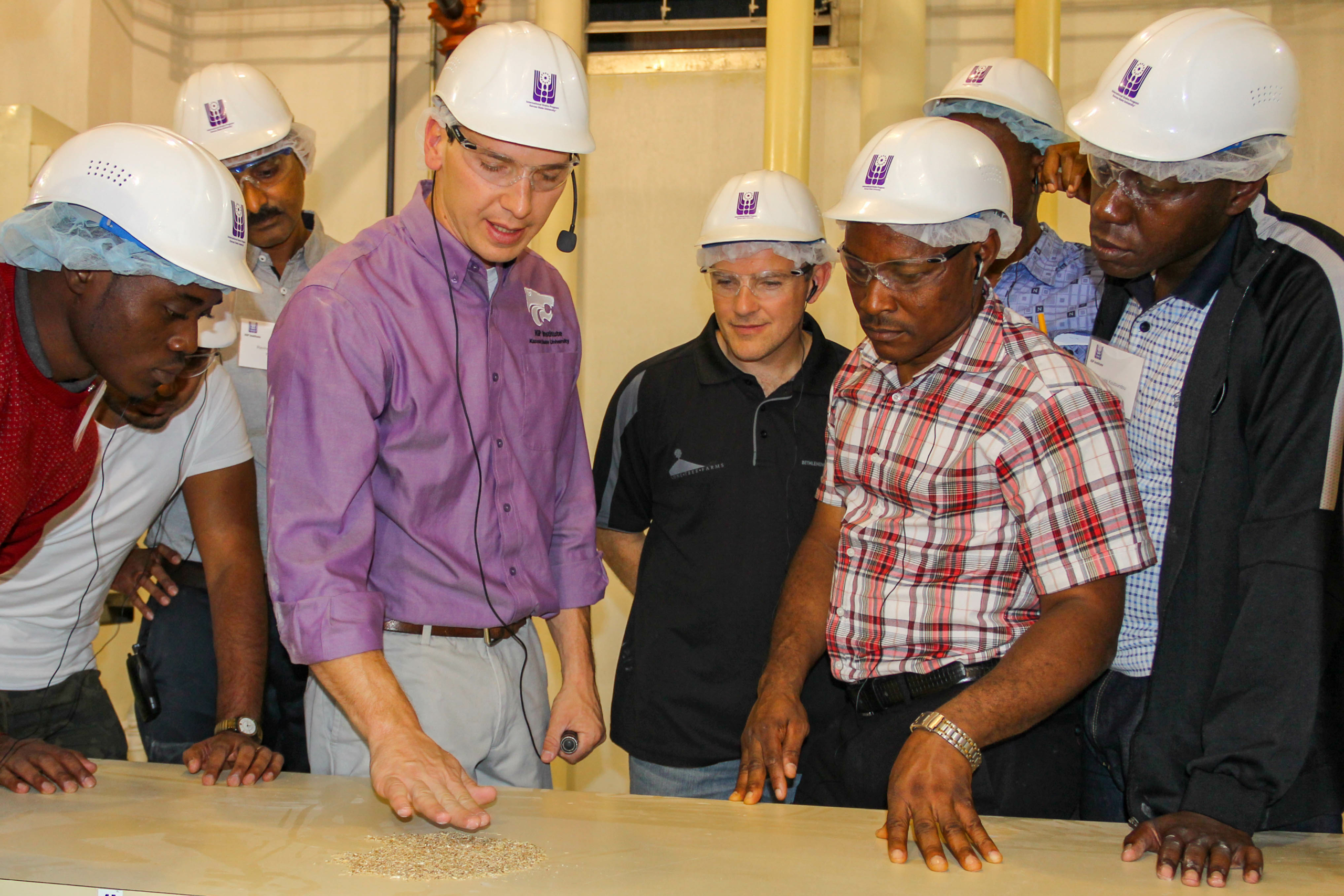Educational Partners Add Value to U.S. Wheat Exports
By Erica Oakley, USW Program Manager
Every year, USW collaborates with educational organizations to offer training that fits the needs of overseas customers. From grain purchasing to milling and end-product development, these courses are created to provide information and training that is beneficial to U.S. wheat buyers and their customers. This year, approximately 70 USW customers from more than 15 countries will travel to the United States to participate in 11 short courses at our partner institutions.
Wheat Marketing Center. This week, the Wheat Marketing Center (WMC) in Portland, OR, is hosting a USW-sponsored Korean team taking part in an Asian noodle development course aimed at evaluating noodles made from various blends of U.S. wheat. The course includes testing a whole-wheat noodle made with soft white (SW) wheat flour.
“Last year, a Korean development team found that noodles with more than 30 percent whole wheat flour from hard red winter wheat did not have the texture, color and flavor that Korean consumers desire,” said Janice Cooper, WMC Managing Director. “In discussions with WMC Technical Director Dr. Gary Hou, the soft white option came up and Dr. Hou developed a research proposal, which was funded by the Idaho Wheat Commission. This year’s Korean team will help test the validity of that concept.”
The WMC provides key programs including technical training, product development and research on end-product quality to help solve customers’ issues and expand the demand for U.S. wheat around the world.
Northern Crops Institute. As in years past, customers from several USW regions will attend a Grain Procurement Management for Importers course at Northern Crops Institute (NCI) in Fargo, ND, this summer. Along with USW participants from Europe and Latin America, the Philippines, one of USW’s largest customers, will be represented by four rising managers and top executives.
“Many of these managers have significant experience and have been active in the industry for some time but are attending the NCI course to refine their knowledge base and increase their skills,” said Joe Sowers, USW Assistant Regional Vice President based in Manila. “They will observe state of the art grain trading software and technologies in the North Dakota State University Commodity Trading Lab. Through the course, they hope to improve their contract specifications and price risk management practices.”
Millers in the Philippines purchase more hard red spring (HRS) and SW wheat than any country. The NCI course includes local farm visits so participants can see HRS production practices first hand. After the course, the Philippine participants will continue to the heart of SW country in eastern Washington state to meet farmers, visit wheat variety breeding facilities, and observe inland logistics infrastructure that has more than doubled in size in the last decade.
International Grains Program. At the International Grains Program (IGP) in Manhattan, KS, a team from Nigeria and South Africa will participate in a customized flour millers short course in June. For both Nigerian and South African senior personnel, “the course offers a refresher on the basics of milling and an enhanced understanding of new milling equipment, techniques and concepts,” said Gerald Theus, USW Assistant Regional Director for Sub-Saharan Africa based in Cape Town, South Africa. “Whereas for junior level milling managers and technicians, the in-depth exposure to various USW classes is a great tool for determining end-use applications and enhancing performance at work.”
A customized course like this provides the opportunity to identify and address issues that are unique to Nigeria and South Africa, which keeps those customers returning year after year.
California Wheat Lab. The California Wheat Quality Laboratory, housed within the California Wheat Commission (CWC) in Woodland, CA, is unique in that it also has an on-site milling and baking laboratory. Through the lab, CWC provides hands-on training to customers and conducts quality testing, chemical analysis and end-product testing.
“The CWC Lab has developed a relationship with overseas buyers, particularly those from Latin America, as they trust our results and seek our input,” said Executive Director Claudia Carter. “The CWC Lab provides guidance about wheat quality related issues and the overseas customers that utilize the lab tend to be those that seek high quality wheat.”
In addition to providing services to overseas customers, the CWC Lab analyzes samples of hard red winter (HRW) wheat and Desert Durum® for USW’s annual Crop Quality Report.
These are just a few examples of the technical support provided by our U.S. educational partners and the value they add to USW’s ability to help meet our customers’ needs. These partnerships will remain a crucial part of USW’s service to our customers overseas on behalf of the U.S. wheat farmers and USDA Foreign Agricultural Service export market development programming that fund such activities.


